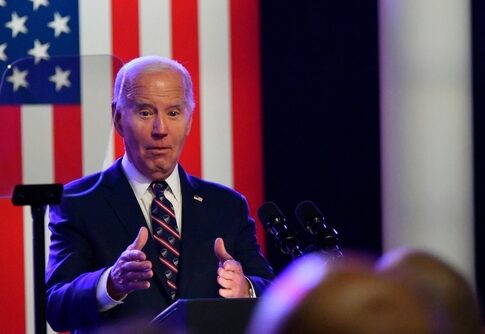The Biden-Harris administration is facing intense scrutiny after it was revealed that a Department of Energy (DOE) official has advocated for applying queer theory to the United States' nuclear weapons policies. Sneha Nair, a special assistant at the National Nuclear Security Administration (NNSA), has previously called for "queering nuclear weapons" as part of a broader agenda that seeks to incorporate diversity, equity, and inclusion (DEI) principles into the nuclear security field.
Nair's position is that queer theory, a field of study that challenges traditional sex- and gender-based norms, can be instrumental in reshaping how nuclear weapons are perceived and managed. She argues that by incorporating DEI principles, the nuclear sector can mitigate potential insider threats and strengthen security culture at nuclear facilities. According to Nair, this approach helps to tell the "hidden stories of displacement, illness, and trauma" caused by the production and testing of nuclear weapons.
It is extremely concerning that someone like Sneha Nair ended up in a position at the Dept of Energy. Make no mistake, the language she is using “queering nuclear weapons” is 💯Marxist. https://t.co/TQGySJ3rPJ pic.twitter.com/A7mBjE3UZs
— Mama Bear is Book Aware (@mamaknowsbooks) August 21, 2024
The backlash against this viewpoint has been swift and severe, particularly from conservative commentators and analysts. Critics argue that such an approach is dangerously naive and undermines the serious nature of nuclear security. They contend that nuclear weapons, which are central to national security and global stability, should not be subjected to social experiments rooted in radical ideologies. Concerns have been raised that incorporating queer theory into nuclear policy could weaken the United States' deterrent capabilities at a time when adversaries like China, Russia, and North Korea are expanding their nuclear arsenals.
Moreover, the implications of this policy have been described as far-reaching and potentially harmful. Conservative voices argue that this initiative is part of a broader effort by the Biden-Harris administration to push leftist ideologies into areas traditionally governed by strict security and defense protocols. The notion of "queering" nuclear weapons, they argue, exemplifies a fundamental misunderstanding of the role these weapons play in deterring aggression and maintaining international order.
🚨#BREAKING NEWS: A recently appointed official, Sneha Nair, at the Department of Energy calls for ‘queering nuclear weapons’. #Queer #DEI #Nuclear
She believes that ‘queer theory” is essential to eliminating nuclear weapons and is important to national security.
Sue believes… https://t.co/cWNNUN88id pic.twitter.com/f9FEQg3n1J
— The Breaking Report (@TheBreakingRprt) August 21, 2024
Adding fuel to the fire is Nair's past affiliation with the Stimson Center, a think tank that has received significant funding from George Soros's Open Society Foundations and the Embassy of Qatar. This connection has further inflamed suspicions about the motivations behind her DEI agenda, with critics suggesting that these influences could jeopardize national security by introducing foreign biases into the U.S. nuclear strategy.
Proponents of Nair’s approach, however, argue that incorporating diverse perspectives into nuclear policy could lead to more ethical and humane outcomes. They believe that by challenging traditional views and including marginalized voices, the U.S. can better address the moral and human rights implications of its nuclear arsenal. Supporters claim that such a shift is not about weakening national defense, but about redefining what true security means in a modern, inclusive society.
As the debate continues, the controversy surrounding Nair’s proposals highlights the broader tensions between progressive ideologies and traditional security doctrines. The idea of applying queer theory to nuclear weapons policy is seen by many as emblematic of the Biden administration's prioritization of social issues over what some consider to be the more pressing concerns of national defense.
Whether this initiative will gain traction or face pushback remains to be seen, but it is clear that the discourse surrounding U.S. nuclear policy is undergoing a significant transformation. As the 2024 presidential election approaches, the future of this and similar policies may hinge on the outcome, with significant implications for the direction of American national security strategy.

